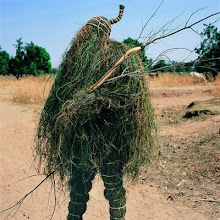Daily Iowa Capital
July 26, 1884, Des Moines, Iowa
There seems scarcely a limit to the increase of bees where feed is plenty. They go with civilization and like Greeley*, they seem to favor going West. Whether thisis a rule with them in all parts of the Country we cannot say. A man who does field work told us recently that during the summer four swarms has passed over his head two of them so low that he stooped to avoid contact with them, All of these were going West, or a little south of West. Probably it was because tall timber lay in that
direction.
There is a bee tree within ten miles of St. Louis, on the farm of a widow lady who protects the tree from the woodman's axe and the bees from all interference. When the bees got ready to swarm they go
where they like with her approval, and no one says them nay. For twenty years, we are told, they have thus enjoyed their bee rights.
While bees seem inclined to move West they love an early peep at the rising sun and always select a tree as the place of their abode which has an eastern entrance. They are early risers. We make a practice of going to the apiary as the first step of the morning's work. In mid-summer when honey abounds, we generally find some bees going out and frequently some coming home with stores, before the sun rises. A man may know a great deal about bees, but he will still have a great deal to learn about them. With all their system they are a mystery. They gather honey all day and in busy season build comb at night. When do the little fellows rest? That they weary from labor, is certain. We have seen them drop exhausted, in front of the hive, and not until a moment's breathing spell was taken, could they rise again to enter the hive with their heavy loads. Why should they work so hard for food for others to enjoy? Few, if any of these hatched out in spring and early summer live to see the snow of winter.
*Greeley - A city of north-central Colorado north-northeast of Denver. It was founded in 1870 as a cooperative farm and temperance center and named for its patron, Horace Greeley. Horace Greeley was a newspaper man and saw the West for real and wrote what he truly saw. Horace Greeley was very conscience and concerned about the people, the land, and the water.
thanks to Historical Honeybee
August 28, 2011
Subscribe to:
Post Comments (Atom)

No comments:
Post a Comment